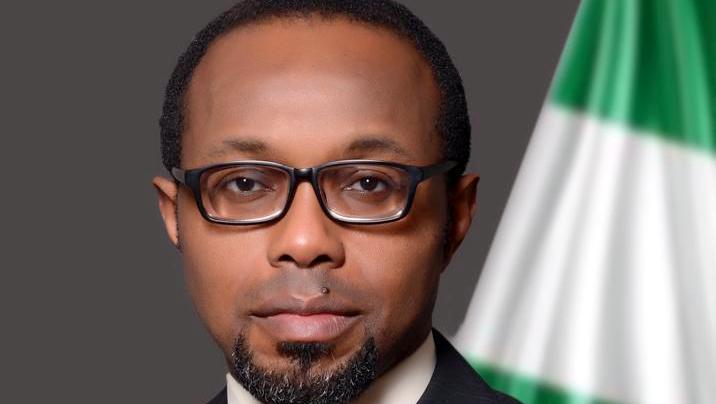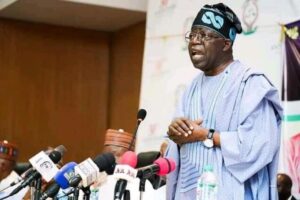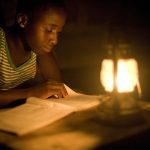
Obi Adigwe is the Director-General of the National Institute of Pharmaceutical Research and Development (NIPRD). The Nigerian government established the agency for research and development of drugs, biological products and pharmaceutical raw materials based on indigenous resources.
In this exclusive interview with PREMIUM TIMES’ Ayodamola Owoseye and Nike Adebowale, Mr Adigwe speaks on his activities in the office, the challenges NIPRD faces in carrying out researches on indigenous pharmaceutical plants and his plans for the agency.
PT: What were the challenges you met on ground when you came in as the Director-General and how have you been addressing them?
Adigwe: I was appointed Director-General of NIPRD in August, 2018 and one of the first things I did was to take stock of what was on ground. One of my very first official activities was to undertake a facility audit. We went round the facilities, took stock of what infrastructural challenges existed, took stock of staff issues and various weaknesses and gaps that existed based on the contextualites on ground when the appointment was made. It quickly emerged a lot of the challenges could be traced to the poor funding of the agency.
Traditionally, the institute had depended on funding that came from the federal budget and as you know over the past few years, various international events have led to the decrease in the revenue at the federal level. For example, the drop in price of oil and other various challenges that have meant that the national growth slowed down, issues that meant that foreign direct investment had reduced and even a drop in the capacity of oil that Nigeria have sold, all these and other microeconomic issues combined had led to a drop in the amount of revenue that have come into the federal purse.
Consequently, this has also led to a drop in the amount of money that has gone to agencies such as ours. We quickly found out that depending only on federal budget would not be a sustainable means for us to undertake our statutory responsibility. We started to develop strategies that will enable us undertake research and development activities that will improve access to healthcare for Nigerians but also do this in a way that we would improve socio economic indices for Nigerians.
One of the initiatives that we developed to help broaden our funding pool is the Contextual Processing Protocol (CPP) and this is a programmme that focuses on improving the way that we engage with our natural resources. This programme ensures that medicinal plants and other related natural resources which grow in Nigeria are better processed by local people and developed in such a way that those products can get to the market and improve healthcare of Nigerians. Also, getting to the market the programme will ensure more Nigerians are employed in getting these products processed, Nigerians will have their skills developed in the process, (human capacity development), and there is also an increase in revenue generation for the state and local government and increase in people earning a living.
The CPP also helps to save scarce forex because we are engaging with products that grow naturally here and will be used in Nigeria, but are mostly being imported now. The key thing is that this initiative leverages on research that already existed within the institute as well as with other agencies with complementary mandates. When we resumed, we engaged a lot of these other agencies that have mandates that overlapped with ours. So we have engaged NAFDAC, NCDC, SON, NESREA and these are all agencies whose actions in one way or the other will potentiate some of the things we are already doing. So for example, as part of the CPP, several products are developed to be used in Nigerian market or to be exported. If they are to be in Nigerian market, they will need to be listed. Our engagement with NAFDAC makes it easier for local entrepreneurs involved in the CPP to have their products listed. If they need to be exported, other agencies will need to be involved. Also in CPP, we are engaging with a lot of products which have environmental importance so we engage with NESREA so that if we are getting these natural resources processed, we are doing so in an environmentally-friendly manner.
We are engaging with these agencies so that we are all working towards the same goal, with respect to our CPP, as well as for other issues.
The CPP is one of the initiatives we came on board with to broaden our partnership based and also develop programmes which will encourage funding from development partners, and commercial entities who are interested in developing local resources. The CPP was developed in such a way that foreign investors could come in and development partners could leverage on this programme and similar ones to achieve their own objectives because it covers a wide range of social economic areas.
PT: One of the things you talked about is harvesting some of our plants for natural resources. There must have been other researchers that have been done on them, but which have been neglected? Do you have a catalogue for them? And do you intend reviving some of them?
Adigwe: There is evidence that indicates that between 8,000 and 10,000 plants which are indigenous to Nigeria may have ethno medicinal or ethno pharmaceutical value. A lot of work has not been done in properly cataloging these plants and their potentials. At NIPRD, you will be interested that we have one of the most robust and comprehensive herbariums (A herbarium is a collection of preserved plant specimens and associated data used for scientific study) in this part of the world.
That is one area we are doing our best to ensure that this knowledge is properly catalogued and put in a manner which will encourage further research into harnessing the potential of these products.
At NIPRD, we are going even further in the different programmes that we have developed, we have mapped out products that grow in the 36 states of the federation as well as the FCT. And while mapping out, we have singled out for each state, plants for which the natural climate and conditions in that area encourage the growth of high quality varieties of those products.
For instance, the topography, the soil condition, the climate in those areas encourage the growth of high quality of those products. For example, in Kaduna State we identified that Eucalyptus, three different varieties of these plant grow very well and it already exists in large quantity in the state.
In Edo State, the oil palm, tens of thousands of acres of the plant already exist in the state. These are raw products that have ethno-medicinal properties. But what we also did was that, in our ranking, we also included plants that not only have ethno-medicinal potentials but plants that have socio-economic potentials. What we are trying to do is that we are trying to kill several birds with one stone.
In our mappings of these products, we said these products have potentials to improve healthcare, but do they also have potential to improve the economic status of people who decides to harvest and process them? Do they have potential to improve the socio-economic indices of that particular state and the country?
Do they have potential for a long value chain that will help to employ people along the line while they are being processed? These are questions that we asked that enabled us to do a ranking. For each state, we now have three star products for each location and this is the ranking that we are now using to approach interested stakeholders.
For instance, we were in Edo State to see the governor, Mr Godwin Obaseki, with a ranking of three products which our research and analysis had indicated top. The plants are the oil palm, ocimum gratissimum and senna.
Senna has good potential for constipation and other gastro-intestinal conditions. Oil palm is widely used. The processing gives rise to a lot of products that can be used in cosmetics, pharmaceuticals and a wide range food and beverages industry. Ocimum gratissimum yields good essential oils in the pharmaceutical and cosmetic industry. So these are products that have potential to improve both the health status of citizens of Nigeria but also improve socio-economic indices in the country, add value to people’s income, improve tax base of the state and the government and generate considerable employment in areas where these products are found.
In a similar vein, we have engaged Kaduna State, Anambra State and over the next few months we have it on plan to engage 12 to 15 state governors. The governors are one stakeholder groups we are engaging; we are also working with development partners.
For instance, development partners who are interested in providing sustainable employment for specific demographies such as women and youth. Some of our projects are specifically embedded with programmes tailored for these groups, so we are engaging such partners.
We are also engaging other foreign governments; we have met with the Indian ambassador because they have a reputation of being one of the few countries that has developed their traditional medicine base.
We have engaged with them so as to look for areas where we can synergise some of their knowledge and activities with some of the emerging knowledge coming up from our research. These are some of the things we have been doing to ensure the immense wealth of natural products that we have in Nigeria are not lost but are properly documented and also documented in such a way that the potential of such products are brought to the fore, so that interested parties can engage and together we can make the best of what God has given us.
PT: Looking at the 2019 proposed budget, the allocation to your agency is quite small compared to other agencies. With research being the hub of innovation and development in any country, it would be expected that your agency would be allocated more fund. How do you intend to get the lawmakers to vote more resources for your agency?
Adigwe: It is a proposed budget, so we cannot make definite pronouncements on something that has not been concluded. I am happy talking about 2018, because 2019 has not been concluded and I have a lot of confidence in the Senate Committee Chair for Health and the House of Representatives’ Committee Chair. They understand that for us to make sustainable progress in improving healthcare in Nigeria, whatever intervention we are making has to be evidence-based. You cannot have that evidence base if there is no research. We have started engaging with them. I am very hopeful that government will start to understand the importance of research. It is a big challenge for government because my background is in policymaking and sometimes you put yourself in the shoes of these policymakers. They have security, economy, job creation and healthcare among others to contend with.
Sometimes also, we in healthcare are not articulate in making our demands known. Just like I told the House Committee Chair when we went to defend part of our proposals in December, I made it clear to them that until we start to take research into healthcare, research into pharmaceutical development, research into the potential that pharmaceutical and related developments has to drive the entire economy, then we will sit where we are and not make any progress. I think the lawmakers are starting to see the sense in our arguments. Don’t forget that these are people who have diverse backgrounds. So, unlike someone whose entire educational career has centered on health and policymaking, you don’t expect them within a two or three hours’ conversation to understand all the little intricacies that are involved in what we do. It is work in progress but I am encouraged by some of the responses we are getting from the National Assembly. I am very hopeful that by the time we are called to defend our 2019 proposal, they will see the sense in significantly improving the figures that were given in 2018.
Having said that, I will like to put it on record, that yes you came to my institute and you saw the structure that were somewhat dilapidated, but my institute is not moribund. I can stand proudly to say that I sit at the helm of one of the best institutes of its kind in this part of the world. I have close to 60 Masters and PhD holders in my institute. I have a workforce that understands the importance of research and are prepared to bend over backwards to do what it takes in order to achieve what needs to be done.
Anybody who is in our field knows that an Institute is made up of two broad components, that there is the human capital and there is the infrastructure. If you give me a hundred million dollars today, I will buy the best equipment and in six months to one year I will train my already capable staff up to utilise this equipment and we will rank first five or 10 in the world. If the equipment is there but there are no competent people on ground who you can train up, it will take you 10 to 30 years to develop a competent workforce. So I have the most important component, which is the manpower.
NIPRD is the centre of pharmaceutical research and development in the entire West Africa. Everybody rings and wants to collaborate with us. In addition to our staff, we are also a coordinating centre for people who are in other universities and institutes who collaborate with us in order to get the work done. What we are lacking are the relevant funds to get our infrastructure up to scratch. But it is something we can achieve in a few budgeting cycles as well as with partnership with some of the new contacts we are making and in a few years we will get that right.
PT: Conventional medical practicioners are suspicious of traditional medicine practitioners. Do you have any intention of collaborating with them, knowing full well they are also custodians of herbal knowledge?
Adigwe: We not only have plans to mainstream people who engage in Africa traditional medicines, it is actually one of the major reasons why we were established. If you go into our Act, one of the key objectives for establishing NIPRD is to undertake research into phytomedicines and it is a responsibility we take very seriously.
The suspicion that conventional medicine expresses when viewing any medicine that is not conventional is understandable because in places like China, India where they have undertaken the relevant research into their traditional medicine, there is robust and comprehensive evidence of what herbs cures what illness and what dosage form is best in what situation. Here in Nigeria, not so much and that is one of the areas we are focusing on.
You will be interested to know that in addition to having a whole department that looks into traditional medicines at the institute, we also have a department that looks at Pharmacology and Toxicology. Whenever any of these products are brought to us for investigation of the potency and efficacy, we also check if the products are toxic and at what concentration it begins to affect the health of the human beings.
We have one of the best Animal Houses in the region, and with this, all the relevant tests and research activities can be undertaken, as a prerequisite for pre-clinical product exploration, or for listing at NAFDAC. We have five technical departments that take care of different aspect of the investigations that need to be undertaken on these traditional herbs before we can make categorical statements about them. The chemistry, the microbiology, we already have all those in NIPRD. We have now started the process of reaching out to traditional medicine practitioners to engage.
NIPRD under my leadership, is an institute that is for potential partnership with anybody who has a claim. We will partner with you to help you to investigate those claims. So we have started engaging traditional medicine practitioners to come forward so that these products which everybody knows have potential can be mainstreamed. Because when we better understand the science behind the claimed actions, then we can categorically say this is the reason why this plant has these effects on this disease in human beings. We have started the process and it is something that I take very seriously. Hopefully, in no distant time we will start to see encouraging results from the Traditional Medicine Practitioners.
PT: We have had researchers like someone who said he had cure for HIV. Do you see your agency working with such researchers and harmonising their efforts so there will be no overlapping or replication of knowledge with scare resources?
Adigwe: Like I said, one of the strategies we adopted when we started in the fourth quarter of last year was to engage institutes and agencies that have mandate that overlapped with ours so that we don’t have people working in solos and people don’t know what others are doing or replicating efforts. It is a waste of effort and resources. We are replicating that strategy amongst scientists. Since I came on board, a number of the major universities have reached out to us to indicate strong interest in partnership. Not just the universities, we have engaged teaching hospitals, research organszations both public and private, policy organisations both public and private have all reached out to us. There is a big advantage we have going for us. NIPRD is a strong brand and people understand that we are at the centre of pharmaceutical research and development. When you couple that with our young, competent and aggressive leadership, people have started to see the potential of what we can achieve. And there is a lot of enthusiasm to partner with that particular combination. In the first few months of my appointment, close to 30 notable professors reached out to me. I was humbled because most of them I did not know. Some I knew only by reputation. They were like, we heard of your appointment, we have seen your profile, we have seen what you did in the UK, and with the manufacturers’ group, we will work with you.
What we are doing is gradually putting together a compendium of experts in different areas. We call them thematic areas so that at the end of the process, there will be a comprehensive database of who is doing what and where in Nigeria – so that if you have a group that is doing research into sickle cell in Kano and another one doing it in Maiduguri, we already have a team doing it in NIPRD and we will all work together so that our resources can be merged and we can reach our objectives quicker and in a more resource efficient manner, compared to if we are all working alone. It is slow, it is work in progress but it is something I am very sure that when we put together our compendium and we launch it, stakeholders and Nigerians will appreciate the works put into it.
PT: There is this new trend in research in other climes that seems not to be taking hold in Nigeria, called the multidisciplinary approach research. Coming from abroad, how do you intend bringing this to play in your agency?
Adigwe: I like the fact that you said coming from outside Nigeria. As you know my Masters degree was taken from the University of Edinburgh, my Doctorate from the University of Leeds, these are two highly regarded universities which incidentally are outside the shores of Nigeria.
What that experience did for me is that it broadened my horizon both on how to gain knowledge, undertake research and ensure impact. Having one degree from Nigeria plus two degrees from outside Nigeria and considerable experience over several continents on technical trips means that I understand how important multidisciplinary research is today. I have close to 30 publications today and I think maybe only one or two were solo publications, all the others were collaborations.
That is evidence that I not only understand it but I practise it. You are again right that the trend hasn’t quite caught on in Nigeria. But there are people who have started doing multidisciplinary research here and there. But we still have a lot of professors, doctors, researchers and stakeholders who are stuck on the mentality of this is my own core area, I am the lead in this area and need to be churning out hundreds of publications without thinking about what impact those publications will make on Nigerians or on the target population. Whereas a multidisciplinary approach represents a more comprehensive and robust approach to generating evidence and such evidence that is generated from that approach is more likely to be taken up by policymakers and stakeholders and implemented quickly. You don’t need to go around begging people to implement your research. Because the multidisciplinary approach argues that some of the stakeholders who will use the research may even be involved in the process of generating of the evidence.
So if you remember an answer to an earlier question, I mentioned that professor and researchers will be mapped into thematic groups. Those are thematic working groups. This group could also include other stakeholders who are not scientists, for instance, media people. There are media people and communications experts who have done work in diabetes for the past 20 years and have amassed the considerable amount of expertise. Even though they don’t have a doctorate or masters degree, they could be knowledgeable in determining whether the evidence-based intervention you are bringing will be accepted. It is one thing for you to develop an intervention that science says will work, it is another thing whether people in that context will accept that intervention. You can spend millions of dollars developing an intervention but if that intervention is rejected by the target population, all your effort is wasted. So, my expert working groups will be multidisciplinary in nature and like I told you earlier on, NIPRD is open for collaborations and partnerships.
The partnership is for everyone; people have different expertise which are not necessarily certificated. I will sit down with my key officers who are knowledgeable in those areas, we will look at how to assess and include those perspectives, if they are relevant to us.
PT: Coming from the private sector, how do you think you can bring the private sector to work with the government in manufacturing drugs in the country?
Adigwe: One of my major claims to fame when I was heading the secretariat of the Pharmaceutical Manufacturers Group was helping to midwife the fiscal policy that ring fenced four categories of medicines for local manufacturing based on the evidence that Nigeria manufacturers had capacity to satisfy local consumption for those medicines. That particular policy went on to stimulate the significant growth and development for the sector in those particular categories. So having done that from the private sector, I have a keen awareness of the kind of policies that are required to further develop local manufacturing in Nigeria.
I can assure you that if I have 10 meetings in high level government offices, seven out of those 10 meetings are related to formulating policies that can further develop manufacturing in Nigeria. Nigeria has considerable potential in the pharmaceutical sector. We have over 100 manufacturers, over 500 importers and various other players, intellectuals, stakeholders in the pharmaceutical sector today. And when you look at the whole of Africa, the cohort we have in Nigeria is the greatest in terms of numbers and in terms of competence but we are not yet at the level where we are adequately harnessing that particular potential. Unfortunately, other countries who understand how important the pharmaceutical sector is, have caught on and are putting together policies that will enable their pharmaceutical sector drive their economies. Pharmaceutical sector was key to India becoming one of the biggest economies in the world today. Pharmaceutical sector was key to Bangladesh being reclassified from a low income country to the next category up.
They articulated the relevant policies and enabled the pharmaceutical sector which is known to have one of the longest value chains, to drive their economies and that help them generate income, bring in foreign direct investment, expedite job creation, expedite knowledge transfer and a lot of other socio economic indices. We know all this but developing policies in an environment like Nigeria is not as easy a task as it is in these other nations. What I can assure is that, we are at it. The process is ongoing and one good thing is that government is focused on ensuring that we use what we have as a nation to get to where we need to be. That significantly makes the job a bit easier. When we started working, the pharmaceutical manufacturers group came for a courtesy call and we understand their importance, they have considerable investments and leverage, they have considerable brand knowledge, marketing expertise and all that. We understand the importance of all other stakeholders including the importers, which will enable us collectively understand the importance of the sector, work together and harness our potential to get Nigeria to become the hub for pharmaceutical manufacturing for the whole continent.
PT: Would you like to speak on the controversy that trailed your appointment as the Director-General of NIPRD?
Adigwe: Let me start from how I came back to Nigeria after my PhD. So I rounded up my PhD in the early part of this decade, and based on my passion for my country, I turned down many juicy offers to stay back in the UK. I wanted to come back to Nigeria to add my own quota to national development.
My first landing port was in the National Assembly where I put together the health policy research and development unit. Based on the fact that I put it together, I was also the first head of that unit. I spent several years there and we did ground breaking researches, which included the first knowledge attitude and perception (KAP) study in Ebola in the whole of Nigeria. We also undertook several research projects that looked at quality of medicines, looked at rational use of medicines and some other seminal studies which we tried to put together to help develop evidence that can support policymaking in our sector.
A few years down the line, I left that post to become the Executive Secretary and the Chief Executive Officer of the Secretariat of the Pharmaceutical Manufacturers Group (PMGMAN). While I was with PMGMAN, we formulated the medicines’ security concept which was the philosophical base that underpinned our argument that government and other stakeholders needed to encourage the local manufacturing of medicines. We felt that unless the people are able to determine how their medicines are manufactured, distributed and supplied, that particular group will not be assured of a sustainable supply of medicines and sustainable access to healthcare and would not have the relevant say that they should have on those products being affordable, being safe and being efficacious.
Based on that concept that has now been widely accepted across West Africa and even at the Africa Union, there is now a lot of interest in Africa developing contextual solutions to address African problems. If we do not put together competencies and structures to solve our problems, nobody is going to come from elsewhere to do that for us.
This was where I was, when in January, 2018 there was a vacancy published in the newspapers asking people to put in applications for DG of NIPRD. I spoke with my members of my board at PMGMAN, got their support and I put in my application. From the day I put my application, I started to prepare myself for this role in case I got it and that is the reason why I have barely been in office for four months and you have seen the amount of work we have done to try and address some of the decades old challenges we met on board.
We have engaged three or four state governors, close to 15 embassies and development agencies, we have engaged several development banks and organisations, we have engaged partners and potential stakeholders that are outside the traditional circle that have been known to support the work that we do.
From the day I put in my application, I did an analysis of what the issues were at NIPRD and I said to myself, if I am appointed what will I do to address those issues? I came up with a comprehensive plan. Fast forward to the middle of the year, we were invited for an interview that included oral, written and computer-based sections, and that was the most rigorous interview I have attended. Interestingly, it was double blinded. So we came into the hall and we were asked to pick out numbers from a hat, and not let anybody know who has what number until the end of the interview. I learnt they marked the scripts with numbers, without knowing which applicant had what script.
One of the questions they asked me during the oral part of the interview was, “knowing that NIPRD has issues with funding what strategies will you put in place to address funding for your institute if you are appointed the Director General?” I had a list of 13 different strategies in my head to give them but I think they stopped me when I got to number three or so. These are the very same strategies that I have now started to implement within the first four months of my appointment. I was told that the appointment was done by the Presidency on merit, and based on that fact and I came first with a wide margin, I was invited to collect my appointment letter.
I think I may have heard about people circulating certain petitions on social media. But as you know, I am not very active on social media. I don’t bother myself with people who complain about a process only when the result has come out and it did not favour them. I bother myself with implementing strategies that have been rigorously developed in order to enable my institute add value to the healthcare of Nigerians and at the same time improve socioeconomic indices for citizens of the country and for the government itself.
You may be interested

PSG To Reignite Interest In Osimhen
Webby - December 21, 2024Paris Saint-Germain have contacted Napoli to discuss signing Victor Osimhen in January, according to reports in France.It is reported that…

Arteta Provides Injury Updates On Five Arsenal Players Ahead Palace Clash
Webby - December 20, 2024Arsenal manager Mikel Arteta has revealed that Declan Rice and Riccardo Calafiori are both available to be in the Gunners…

Carabao Cup: Spurs Edge Man United In Seven-Goal Thriller To Reach Semi-finals
Webby - December 19, 2024Tottenham Hotspur edged Manchester United 4-3 in the quarter-finals of the Carabao Cup on Thursday.Spurs raced to a 3-0 lead…




















![American Pastor, David Wilson Seen Eating The Box Of Woman Who Isn’t His Wife [Video]](https://onlinenigeria.com/wp-content/uploads/2019/10/american-pastor-david-wilson-seen-eating-the-box-of-woman-who-isnt-his-wife-video-150x150.jpg)









